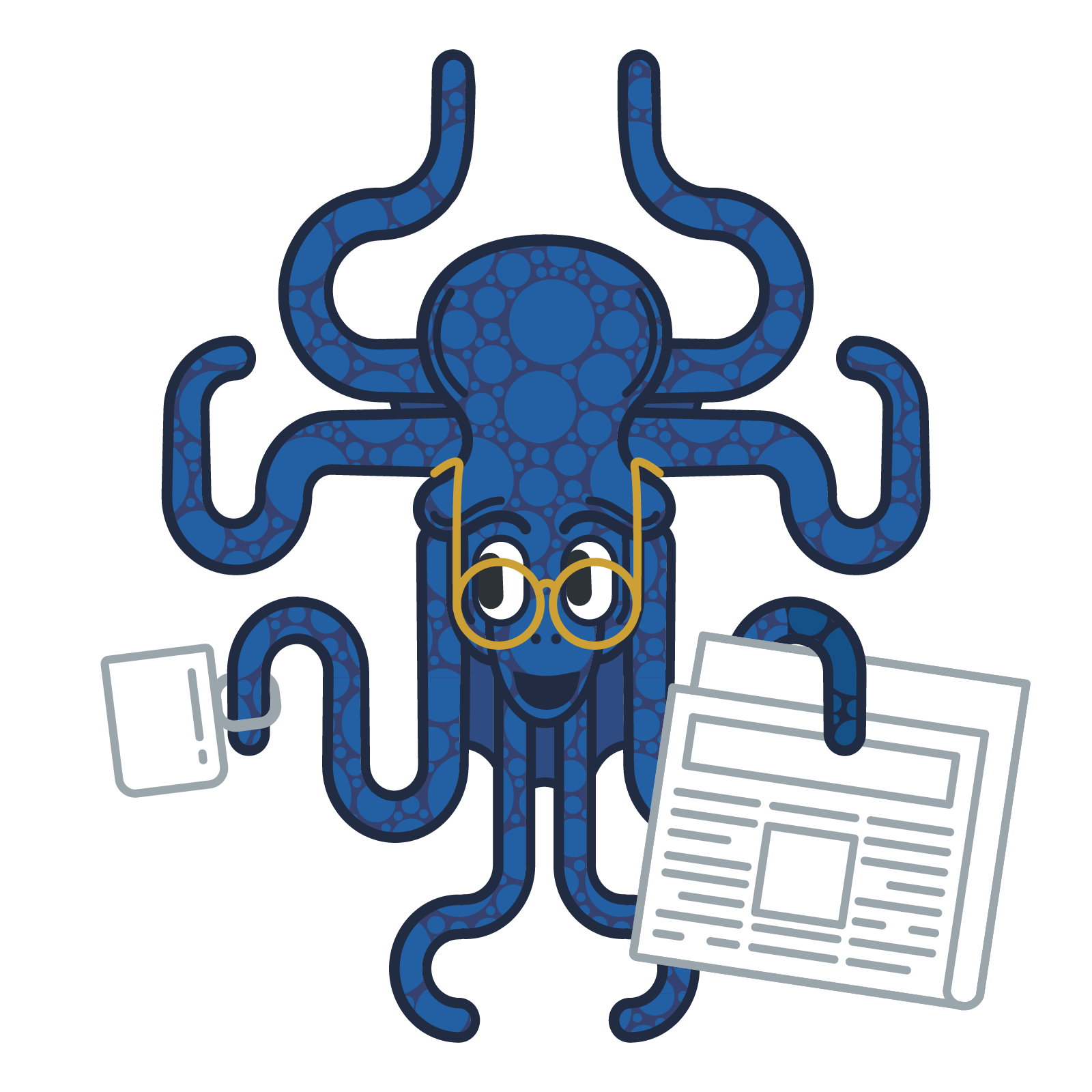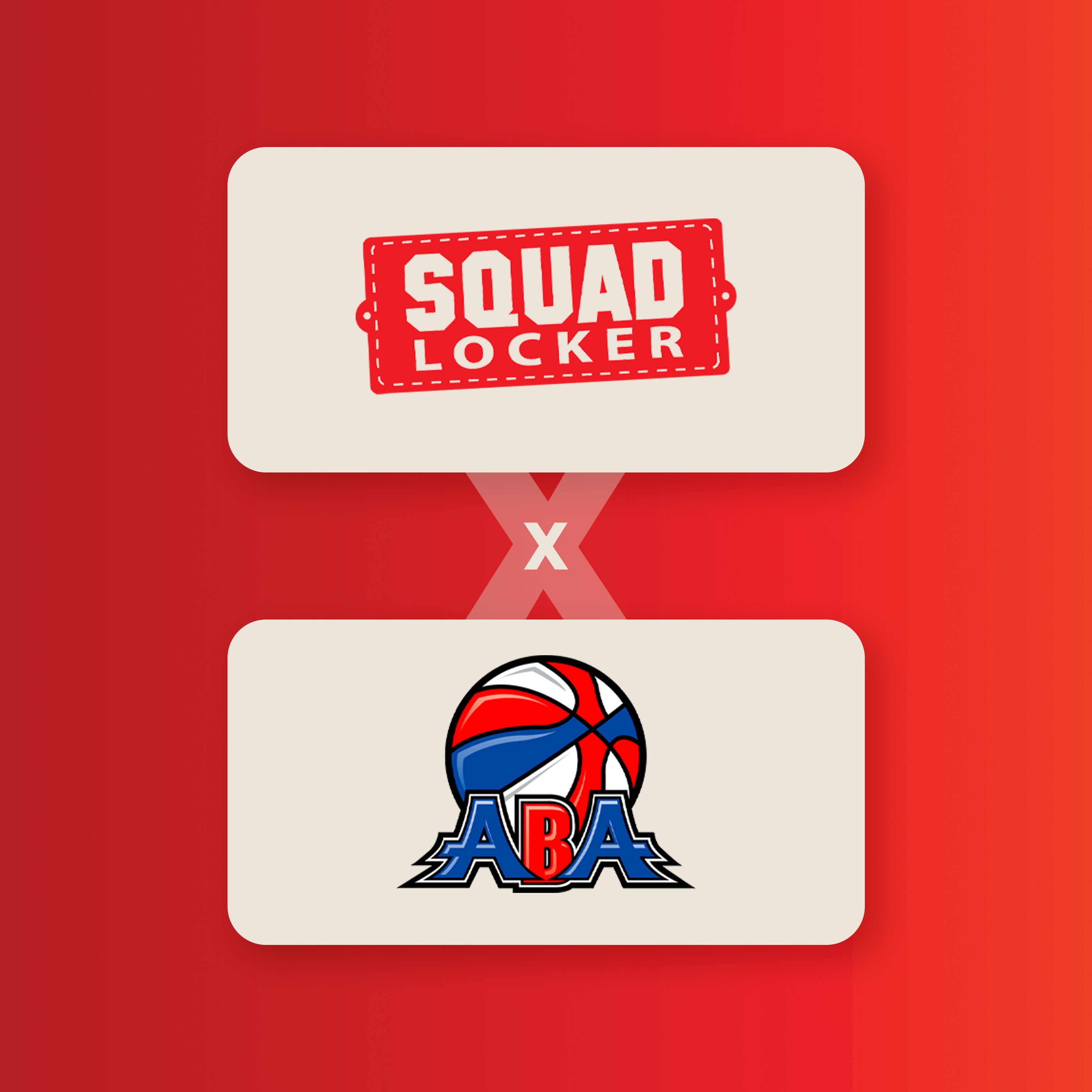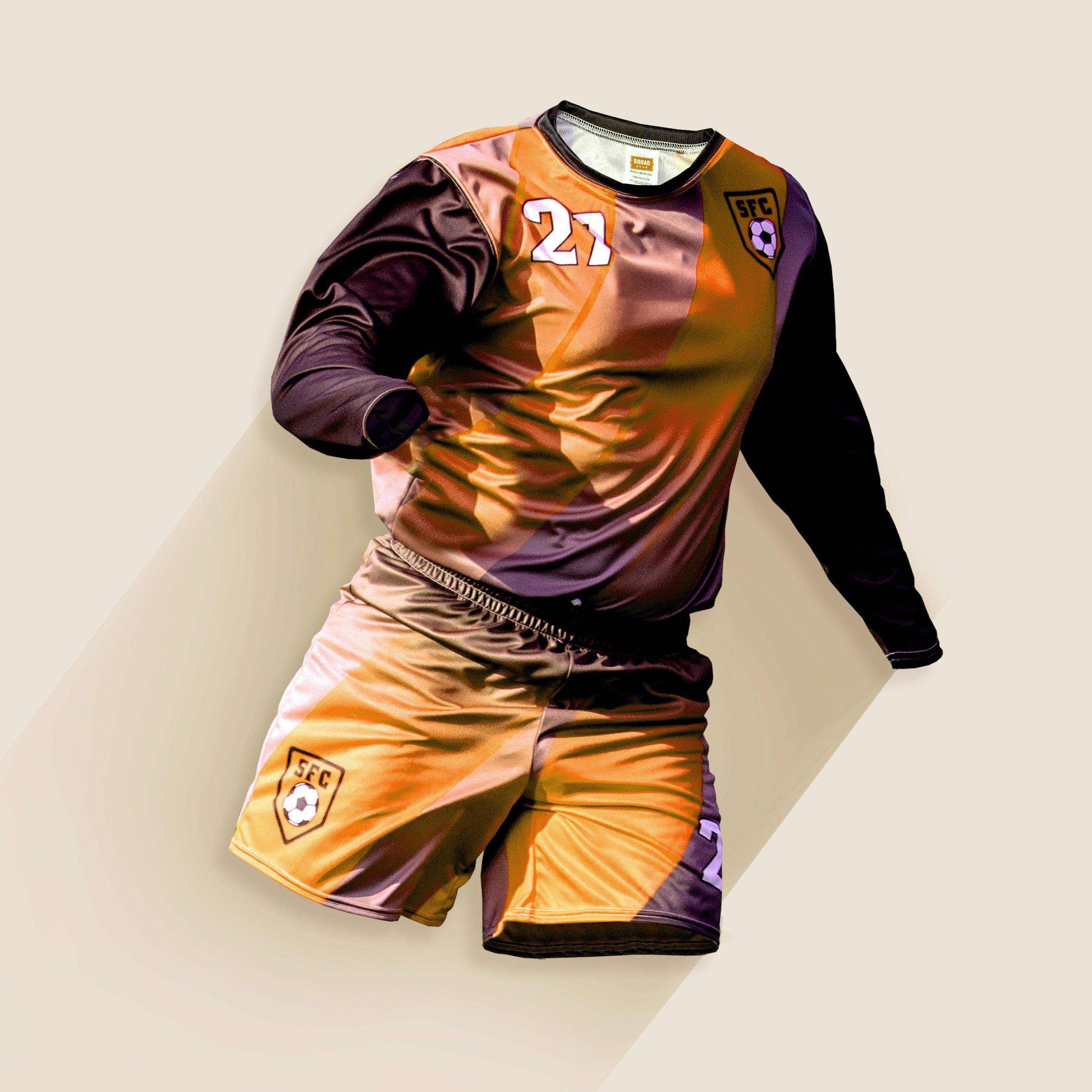Read more on the SLMA Blog
Transcript
Paul Roberts:
Hey, welcome everybody. It's time once again for another episode of SLMA Radio. We're the longest running program here in the Funnel Radio Network, and today we have with us somebody who's been with us since the beginning, Susan Finch. Hey, Susan, who'd you bring with you today, and welcome to the show.
Susan Finch:
Well, thanks, Paul. It's nice to be here. It's been a while since I've been a host. I am excited today with everything that's been going on and pulling together, being part of a team. I have Gary Goldberg, who is the CEO and founder of SquadLocker, and we are going to learn all about SquadLocker. What they do is they have sports uniforms, they've been brought into the digital age with on-demand printing customization and so many things, but that isn't what we're talking about at the moment. You'll get that at the commercial. We're going to be talking about the importance of teams and building a company based on the inner athlete. Now, being a total clod myself and was never on any teams, I was on a dance team, okay. That was okay and it was kind of foofy, but as far as regular sports teams, I got hurt too often so I wasn't on teams.
Susan Finch:
But I learned how to be part of other types of groups, and as we know, the definition of athleticism and being an athlete has to do with physical activity and things. But I put a lot on the mental. There's a lot of brain work that goes on sometimes to be on a team and there are other ways to be on them. It's not quite as glamorous sometimes, but I've been on drama teams. I've not been on chess teams. I have been on debate teams, and there are other ways that you can be part of a team. So, Gary, welcome. I am so glad to have you here.
Gary Goldberg:
Thanks for having me, Susan. It's a delight and a pleasure to be with you today.
Susan Finch:
You can read his bio on LinkedIn because it's a wonderful story that he is a third generation... You're third generation, aren't you, apparel and textile industry?
Gary Goldberg:
I am. Yup. My grandfather started in the middle of 1948 in Fall River, Massachusetts, after leaving New York City at the end of the great depression.
Susan Finch:
And then you've carried it through. So this version though is totally different, I'm guessing then, what they could have ever even imagined.
Gary Goldberg:
Correct. To build on that, what we do at SquadLocker takes an enormous amount of imagination and ingenuity. We're really disrupting the space. So if you're going to do things that are hard or complicated or new, it requires an incredible reliance on teamwork and appreciation for working with others once we've defined common goals. And so if you are prepared to work with others and are open-minded towards criticism and collaboration, vulnerability, but the right amount of self-esteem and humility, great things can happen. And so that's the underlying secret sauce or recipe that goes into teams and/or teamwork. And for me, it's a current topic of fascination. I'm really into exploring the idea of teams and teamwork and leadership and followship, to use a word or to make a word, and the relationship between those two things. I love to dig into these types of topics.
Susan Finch:
So let's backtrack a little bit though to your childhood and your experience on teams. If you did... I pulled my own covers on how lame and clumsy I am on physical teams. But tell me about your experience.
Gary Goldberg:
I'm really empathetic to your experience, Susan. I think you and I would have been either end of the fence line of the two last kids that got picked-
Susan Finch:
Yup.
Gary Goldberg:
... for the team. I was a late bloomer. I was uncoordinated. I aspired to be better than I could have ever actually physically have been. And so for me, sports was super aspirational, but really difficult for me to get to, and to reach the level of performance where my self-esteem could equal the expectation I had of myself. I was the last guy to finish the race. I was all of those things that you can write... I was the Charlie Brown of youth sports.
Susan Finch:
Yes.
Gary Goldberg:
Well, I found out later in my life that there were influences that allowed me to be great at other things, and although they weren't necessarily sports, like I got really into guitar playing in college and then I was out playing in a performing band and it really started to build my self-confidence. And there were things that I recognized about teams or performance that transcend being good at all things on earth with people. Discipline, excellence through repetition, respecting the right way to do things, being open-minded when you're not good enough, and allowing somebody to tell you that and not taking it personally.
Susan Finch:
Oh, yeah. That was-
Gary Goldberg:
So I was lucky. [crosstalk 00:05:26] Total life skill. And I got lucky because I bumped into a couple of mentors along the way that helped me with that. And it was their ability to be great at what I wanted to be great at, was defined already. So there were moments in my life where I was like, "Well, if I want to be great at these things and these people are already great, I better shut up and put up and not go crying to my blanket at night if someone's telling me I'm not good." And so they were awakening moments for me where I had to reinvent myself and invest in myself.
Susan Finch:
You hit on a super important point though, and that's about the mentors that were put in your path, or that happened in your path that you were blessed to have in your path, however you want to look at that. And we always talk about, oh, we want to hire people with that team mentality and things, but it starts, for a lot of us, in leadership roles of being that mentor. And not just mentors of people that we can make money from in our companies, but mentoring those that will be part of our future, the children, and having an active role in the lives of the future. And I know that's really near and dear to you, is the importance of the role of coaches and whether it's a parent who is the coach, whether it is the sports coach, the teacher coach, whoever it is, the robotics coach, that it just takes some of those very wonderful moments to stick with you for life and guide you in all of your endeavors, as far as your principles, your credibility, everything.
Gary Goldberg:
Amen. Absolutely. And in my life I've been blessed. I've been blessed with parents that taught me right from wrong, caring from bias, the value of education, the value of commitment. My dad always says, "You've got to look at yourself in the mirror every time you shave, so be comfortable with who you're looking at." And so, blessed that my family was an infusion of integrity and honesty in my upbringing. And then from there the road's bumpy, but boy did I have some highlights with some great mentors. I had a great baseball coach in high school that I still talk about today, this guy, coach Donovan. I still use the phrase, excellence through repetition. He was my English teacher and he was my baseball coach. And he would hit us ground balls and force us to define vocabulary words as we fielded the balls.
Gary Goldberg:
And I'll never forget, he yelled out to me. He said, "Goldberg, second base, unctuous." And I pick up the ball and I said, "Snake-like oil," and I threw it to second base. I was working in the infield. He was an incredible role model for me because he gave me the confidence to know, "You want to be good at something, you stick with it and you do it by these set of rules, and stay tough." Coach Donovan told us there was three reasons to miss a baseball game or practice. Death in the immediate family, fever of over 103, or a broken bone through the meat. Those are coach Donovan's three reasons why you miss a baseball practice or a game.
Gary Goldberg:
Now, coach Donovan was the most loving, caring, endearing man that I think back in my high school career that I knew, but he had a seriousness to him. Like, "We're going to play baseball. There's a right way to do it." And so I was lucky because he started to explain to me, there are processes to becoming great. There are stepping stones to being good at things. "Follow my path. I'm 60-years-old. I've walked down this path 382 seasons. I'll walk it with you one more time." And so that was mentoring.
Gary Goldberg:
Again, I've gotten lucky. There was a guy. My dad had a big factory that when I got out of college, I started working there full-time and there was this gentleman by the name of Frank [Nunca 00:09:19] and he was in charge of safety and human resources. And he taught me so much about empathy, active listening, listening not to repeat and to speak, but to absorb and understand. He was an incredible guy.
Gary Goldberg:
Again, I've been blessed. I've been fortunate that I've had great mentorship, both family and career-wise and through education. And so at SquadLocker, when we think about our role or our purpose, I think we could all agree, audience members and you, Susan, to a certain extent, that the world is a remarkably complex place. And it's not hard to see that by turning on a television, regardless of what party you choose to tune into, we could easily come to consensus on the fact that the world is full of remarkably complex problems. And to find our purpose in life is to help solve these problems. This is my belief. This is my core belief. Well, look, Susan, you and I can't do it alone, right?
Susan Finch:
Right.
Gary Goldberg:
Even if we want to, and even if I think Susan's the kindest, most powerful woman on earth, and I'm the kindness and most powerful man on earth, it's going to take more than four hands and four eyes. So, as a company or as a person who seeks purpose in their life, how can we contribute to getting to use a phrase, an army of Susans or Gary’s to be helpful and to be thoughtful? Well, I'm not going to be able to do that on my own. I can't train every kid to be thoughtful. I can't do it. But guess what? There's a whole industry of these people and they're called coaches, and coaches happen to be great mentors because there's this really interesting formula.
Gary Goldberg:
Mom and dad say one thing at home and that helps me build my belief system. But then coach sometimes tells me how to turn it into action. So he's the one teaching me how to pitch or teaching me how to catch. That's a super powerful thing to give them more time to invest in kids. And that's kind of the purpose of our company, is to alleviate the pain points of their operational needs and allow them to get back at it and invest in the kids.
Susan Finch:
The time is the most precious gift any mentor, anybody has to give to another human being. There is [crosstalk 00:11:45] no replacement for that.
Gary Goldberg:
We want to fill those stores, their time stores. We want to fill them up so they have more time with their kids.
Susan Finch:
Well, this is a great place for a break, Gary. I know that we're going to have a quick word from... Oh, our guest company today, SquadLocker. And then we will be back to continue this conversation.
Gary Goldberg:
Terrific.
Paul Roberts:
And we just want to remind you that if you're looking for team sports and shipping uniforms, SquadLocker serves over 75,000 teams, leagues and schools by shipping uniforms, custom team gear and spirit wear in three days. That's right. Three days directly to parents, athletes and fans. Imagine the convenience of being able to manage an order from a single SquadLocker store for any team's uniform needs. Anything that can be printed, sublimated and embroidered, according to your needs. For more information, it's simple. Just go to squadlocker.com. That's squadlocker.com and get the team gear you're looking for.
Paul Roberts:
I got to throw in one personal story here. I adopted a daughter in junior high from Mexico. So she's 12-years-old. She can't speak English. She's struggling at school. And the only thing that got her through junior high middle school and high school was team sports. Turned out she was gifted athletically and kids may laugh at her when she was in school. She didn't know or she couldn't speak. But when she got out on the soccer field or the basketball court, nobody laughed. Nobody cared how well she spoke. It was how well she played.
Paul Roberts:
And it's what really got her integrated into the school. It's what bonded her with other kids and taught her how to work with others. Forget about whatever the victories or losses she had. It's what made her who she is today, and I think so much of that experience here. So, yeah, as one of those parents who got very deeply involved in high school athletics with their kid, I can tell you the importance of this and the importance of getting the team together to wear the right stuff, all that spirit wear, it was critical to making a team. It really was.
Susan Finch:
I can see it, but I'm sure the audience can hear you beaming as you're talking about your daughter.
Paul Roberts:
I get choked up talking about her. It's high school sports, and that experience was what made her the woman she is today. It brought her out of her shell and it taught her so much that... Beyond just winning and losing.
Susan Finch:
Well, thanks for sharing that story. Today we have, for those of you just tune in somewhere in the middle, I am Susan Finch and I'm your host today on SLMA Radio with my guest, Gary Goldberg, who is the CEO and Founder of SquadLocker, we just heard about at the break. We ended up telling some of the stories of the mentors, the importance, and your goal and SquadLocker's goal to return time back to these adults who are volunteering their time, most of the time, to help these children and teens and even adults in different leagues become better humans, become more confident humans, and which also makes them somebody we're all going to be fighting over to hire them for our companies.
Susan Finch:
And the topic of our conversation today is building a company based on the inner athlete. So that starts at leadership and goes all the way down into everybody we bring in. So the leadership roles are the continuing of the coaches. My very last boss before I started my own company was also... He was a college professor. So he would teach PR and marketing and things he knew how to teach. He was also so comfortable bringing out everybody's positive skills and allowing them to learn and fail and to learn from the failures. And I will forever be grateful to Greg Smith for that reason.
Gary Goldberg:
Yeah. And an interesting thing about failure. You can celebrate wins, they're super valuable. The funny thing about winning is you don't learn a lot from it. It's kind of funny, right? It's all we all really want. I mean, I wake up every day and I think, "How do I win? What's winning like for me today? Is it finishing this project at work? Is it getting back to my family to do this thing? Is it trying to make this amount of money for this, whatever?" And while I was looking to attain that, but the real lessons are the incremental misses and missteps that build a staircase of success to the win. At SquadLocker, as a company, we've tried to be really sensitive about making it really, really good to fail quickly. Figure it out, fail at that. Okay, what do we learn? Okay, go back. Those incremental failures start to take the form of this thing called success.
Susan Finch:
Yes.
Gary Goldberg:
But a lot of people don't realize that success is just an amalgamation of all your failures. And so, as an organization, we have to discover all of these failures and understand them so that we can build this thing called success. I think many organizations don't start there. Many people think, "Well, I shouldn't do that. I could fail. I shouldn't do that. That could be a mistake. I have to be really careful." I think sports, in general, teaches this idea of consistent missing of the mark to strive to be better, and good athletes understand this idea like, "Well, what did coach say? I better listen to coach. I'm okay taking direction." Good coaches teach their athletes, "When you win you don't make a big stink out of it." No one needs a peacock at the end of the end zone. Put your feathers down, put the ball down and walk back to the huddle, right?
Gary Goldberg:
And so there's these really interesting lessons around great coaching and great mentoring and great teamship about humility. I've seen incredible, I mean, tears-to-your-eyes videos on Instagram about kids with disabilities being invited onto sports or onto games to score points or to participate at a level that may not be an everyday thing for them. And so why is it that sports creates that environment for that, where all of a sudden kids who are so competitive can accept and participate in risking a win just to include someone who couldn't belong? So sports has these lessons and life stories about struggle and failure and humiliating and achievement that you put all that together, you put a nine-year-old to an 18-year-old through that. Maybe they go to college, maybe they don't. It's okay. Then they start to enter the real world.
Gary Goldberg:
And the boss doesn't like you. Well, maybe the coach didn't like you. That might be a normal experience. "Wait, I might have to earn some respect here. Hm, how am I going to navigate this? How am I going to self-advocate? Am I going to take my ball and go home? I can't, I got to work. I have to make a living." Right? And so, for me, I think, athletics and teamwork and mentoring that special sauce, those formulas, those ingredients that work together, do create an experience that is a great preparation for lifelong adversity. My son, my oldest son, graduates from high school. He's about to graduate from high school. Gets a job at the Boston Red Sox before he even graduates. And he's working game day operations up at Fenway and we live in Providence, Rhode Island. So he was going to take the train up, train back.
Gary Goldberg:
One night it was a doubleheader, pouring rain on and off all night, and he's the low man on the totem pole. So he's out in the rain, comes home on the last train 1:00 o'clock in the morning. He's cold, he's wet. And I said to him, "Hey, buddy, if you're in over your skis here, it's okay. You don't have to stick this out if it's too much." It was probably a parenting error, as opposed to me just saying, "Hey, how's it going?" I was worried about him. I was really worried about him. And he goes, "Are you kidding me, dad? What are you talking about? If I'd said to coach Willie," his football coach, "If I set to coach Willie, 'it's cold out, I got to go in from practice,' what would he have said to me?" I'm like, "Coach Willie tell you that?" And I'm like, "Yeah." And he said, "Yeah." And I was like, "Got it. So you're okay staying out in the rain all night on your feet on the cement?" He goes, "Yeah, that's my job." I was like, "Wow."
Susan Finch:
Yes.
Gary Goldberg:
But the fact that he related it back to this physical thing in football, where he was cold on these practices and it was uncomfortable, right. I was like, "Wow, all of that high school work, all the trigonometry and the English and the foreign languages, football just paid you dividends, man."
Susan Finch:
Yes.
Gary Goldberg:
Paid you dividends. You are prepared. And that's something that sports teaches young men and women. And by the way, it's not just on the field athletics. There are other participatory things. I mean, I have another child who is in... who's a drummer who's in a band, learning adversity, learning to come together and work together. Debate club, robotics. It's all these lessons. It's all about teamwork and sportsmanship.
Susan Finch:
It is. And that's what sticks. And I think when it is illustrated for us, not a lesson that we're reading, not a lesson that we're just hearing, but a lesson we are doing.
Gary Goldberg:
Yeah, physically.
Susan Finch:
It's what drives it home and makes it stick forever. I can pull back so many lessons, and that's exactly where they came from. They were experienced lessons, not just told at me over and over. That doesn't do it.
Gary Goldberg:
Yeah. I agree.
Susan Finch:
One of the things I liked so much, Malcolm Lemmons had three things that he says about the athlete mindset. "I love the show-up every day, whether you want to or not. Take your losses and move on," which is exactly what you were saying, "And celebrate the small wins, but always be ready for the next opportunity." And I think that sums up everything you were covering. That's what it is. It's what we bring to it whether we are in the leadership role or the person being hired, who's going to be the low person on the team. What are you guys bringing and how are you going to integrate what you learned in childhood, learned on a team, learned in a club? Anywhere where you had to rely on the cooperation of others and also contribute without having to be, like you were saying, the peacock in the end zone.
Gary Goldberg:
Plenty of those. We don't need more of those.
Susan Finch:
No. Gary, if you wanted to have people... Do you have a challenge? You have something that you want to encourage people to do on this topic that they can all do in their own company, in their own positions?
Gary Goldberg:
Well, that's a little bit of a curve ball zinger fast ball inside pitch at me, Susan. I don't know if I necessarily have thought through that. If I were going to encourage people to do things, it would be, remove your biases, set your biases aside. Don't expect certain outcomes. Don't try and control things that are uncontrollable. And believe in the power of teammates, and believe in the power of your team. That'd be my one thing, my one challenge.
Susan Finch:
Now I'm going to add one more, too. Appreciate your own failures and look at them as a gift to be better.
Gary Goldberg:
Love it. Agreed.
Susan Finch:
So everybody, you can find Gary on LinkedIn, of course. You can also find everything about SquadLocker and his whole leadership team there and the products and services that they offer at squadlocker.com. For us, you can find us on slmaradio.com. You can find us in every one of your favorite podcast venues, including Apple podcast, Stitcher Radio, iHeartRADIO, TuneIn. You hang out there, we're there. Go listen, subscribe, rate us and tell us who you want to hear. You got a guest idea for us? Let me know. I would love to consider that. So thank you so much, Gary. It's been a pleasure having you and getting to know you better.
Gary Goldberg:
Thanks, Susan. It was a fun time being with you and talking with you.
Susan Finch:
Thank you so much. Back to you, Paul.
Paul Roberts:
You've been listening to another episode of SLMA Radio, right here on the Funnel Radio Channel, for at work listeners, like you.
Share this Story


.jpg)







